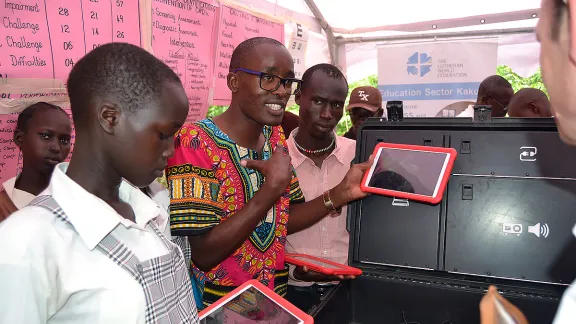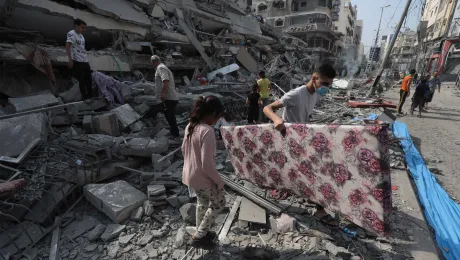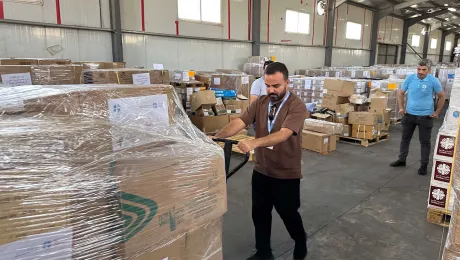
Students from LWFâs Angelina-Jolie school in Kakuma refugee camp with tablets in computer class. Photo: LWF
LWF Part of Cross-Sector Coalition Helping Refugee Settlements Go Digital
(LWI) - The Lutheran World Federation (LWF) has joined a high-powered public-private coalition to transform refugee settlements into digitally-connected communities. The coalition brings together more than two dozen organizations who will introduce internet and mobile connectivity, access to clean, efficient energy, and digital financial tools for communities in Kenya and Uganda, and later bring similar services to other refugee hosting countries around the world.
Internet, financial tools, energy
The coalition is led by credit card giant MasterCard and the U.S. Agency for International Development (USAID). Its members/partners include the Danish Refugee Council, the Norwegian Refugee Council, Microsoft and the U.S. State Department’s Bureau of Population, Refugees and Migration.
“The LWF is proud to work with so many dedicated and professional partners in the Smart Communities Coalition,” said Lennart Hernander, Djibouti program representative in the LWF’s World Service-Kenya.
“The LWF has supported refugees in Kakuma for more than 25 years. We were among the first few partners present on the ground when the ‘Lost Boys’ from Sudan started to arrive,” he added.
We see the Smart Communities Coalition as a major step towards a future-looking and integrated solution for refugees and local communities, which through connectivity and renewable energy will provide new opportunities for all.
“We see the Smart Communities Coalition as a major step towards a future-looking and integrated solution for refugees and local communities, which through connectivity and renewable energy will provide new opportunities for all,” Hernander noted.
Part of the two leading coalition partners’ Power Africa initiative, the cross-sector effort will pilot programs early this year to address some of the biggest barriers to development, emphasizing that mobile phone and internet access are critical to refugee safety and security.
Average of 10 years in a refugee camp
There are seven million refugees worldwide living in camps or settlements, men, women and children who have fled from countries ravaged by war, political unrest and natural disasters in hopes for a better life, the coalition said on 24 January at Davos, Switzerland.
However, these refugees spend an average of 10 years in exile, mostly in low- and middle-income countries that are already under significant economic strain, a coalition communique added.
Uganda and Kenya are among the 10 countries with the largest refugee populations, with Uganda hosting 1.4 million refugees where Bidi Bidi is currently the largest refugee settlement in the world.
Kenya hosts 490,000 refugees in settlements, including Kalobeyei, which was established in 2015 in order to try and improve conditions for refugees and host communities through an economically integrated approach.
Empowering communities
In a recent report on integrated models for refugee camps, published by MasterCard, three focus areas are identified: connectivity, digital infrastructure and energy access. The report builds on extensive research in the Kakuma and Kalobeyei camps in Kenya.
Building on these findings the coalition members will create accessible and resilient connectivity platforms to deliver vital information to refugees and host communities and enable efficient settlement management operations.
The coalition will also design and implement integrated identity, payment and data tools that improve delivery of essential services; and it will work to provide access to low-cost energy for refugees and host communities.
Currently there are more than 65 million refugees worldwide. The LWF has worked with refugees for 70 years and from its foundation has understood that supporting refugees and displaced persons is one of its core values.
Today LWF runs numerous refugee settlements on behalf of The United Nations High Commissioner for Refugees (UNHCR) and in 2014 signed a new Memorandum of Understanding to extend the term of this close collaboration beyond 50 years.
“The Smart Communities Coalition approach empowers communities in a dignified and accountable manner. This is at the very core of the LWF’s vision and objectives globally,” Hernander concluded.


